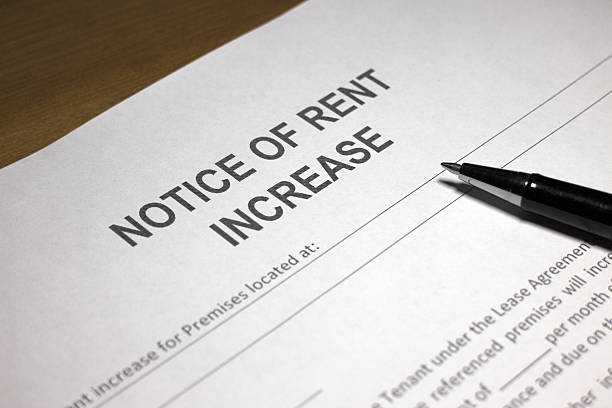Get reasonable returns on your rental investment by increasing your rent when appropriate. Landlords spend a lot of money to ensure their rental properties provide tenants with the basic amenities they need while also serving aesthetics to the interior. After embarking on expensive home construction to spruce up your interior design, meet modern standards, or reduce your overall maintenance cost, it’s only natural you’d want to recoup your funds by increasing your rent. However, landlords have to tactfully communicate the upward adjustment with their renters to avoid making them feel they’re being extorted for selfish reasons. Here’s a quick guide on 3 ways you can justify a rent increase to your tenants, and how to communicate it mindfully.
At Home The Spruce, discover stylish decor ideas, top-notch product reviews, and expert guidance for all your home projects. Empower your lifestyle and elevate your space today!
3 Reasons for Rent Increase
Property Improvements
Upgrading your rental can be an expensive endeavor, especially if you’re going for high-value updates such as a new appliance or an additional room. In such scenarios, increased square footage and enhanced amenities can justify a rent increase. As these improvements can increase the tenants’ quality of life and their living experience in your rental, they have to be willing to shell out a couple more bucks to cover the new rates. Keep in mind that property improvements don’t always have to be aesthetic; functional upgrades like buying a new HVAC system or insulated windows that reduce your electric bill can justify a rent increase. Aside from that, you can also sell the cost savings to your tenants as a positive because they can save more money in the long run.
Market Rate Adjustment
Stay up to date on the latest market prices to avoid undervaluing your rental out of business. Rental prices can’t remain static forever, even when a property owner doesn’t make any noticeable upgrades. Factors such as demand supply and inflation can drive up the cost of rental prices so it’s important to reasonably adjust yours to stay competitive and keep the rental income stable.
Increased Maintenance Costs

Ensure that your rental continues to run at a net positive by factoring in an accurate estimate of our property maintenance. Aside from the upfront cost of the installation, you have to consider the long-term maintenance needs of your construction and factor that into your rental increase. For instance, if you add a pool to your property, you have to consider additional maintenance expenses that increase your operating costs such as added insurance, buying chemical substances, higher electric bills to light the pool, and cleaning services. To navigate these additional home upgrades and expenses, hire a responsible Philadelphia property manager to help calculate the right rent increase.
How Should Landlords Communicate Rent Increases with Tenants
Advance Notice
Avoid blind-siding your tenants with a new rental rate five days from when it’s due. Not only is springing up such a policy inconsiderate, but it’s also illegal. Many states have tenant laws that require landlords to give their renters ample notice to adjust before implementing a rental increase. It would be best to check with local real estate laws to avoid getting hit with a penalty fee when you should be raising money. Most jurisdictions require a notification period of 30 to 60 days, which should give your tenants enough time to adjust and make timely payments when due.
Encourage Open Communication with Tenants
Be responsive to tenants’ questions and concerns to show that you care about your renter’s well-being. Even when you have a valid reason to increase your rent, you also have to factor in your renter’s ability to pay the difference, and the last thing you want is to come across as cold and unconcerned when they lodge complaints. Instead of seeing their questions as an attack, use the opportunity to explain the reason for the rent increase and how it could benefit them in the long term. If you own a multi-unit building, you could even organize a Q&A session for your tenants to alleviate all their worries and give them space to air their grievances. Such proactive steps can improve your relationship with your tenants, encouraging them to renew their lease even with the added expense.
Conclusion
Justifying a rent increase after home construction projects requires some level of tact to avoid driving away your tenants. As a result, it would be wise to outline the reason for the rental increase in your next notice. Make sure to highlight how recent property improvements or hiked maintenance costs necessitate the adjustment, or if it’s been a while since the last increase you can claim current market rates.
In addition, how you communicate with your tenants about a rental increase matters a lot. You can’t spring up last-minute rental decisions on your renters without getting undue backlash, so give them enough heads-up to plan their finances. Also, maintaining open channels of communication shows tenants that you value their input and are willing to listen.


